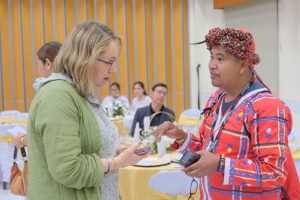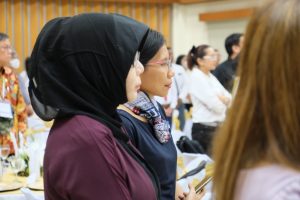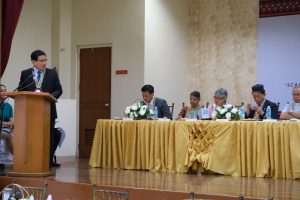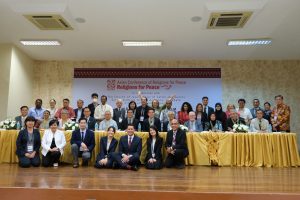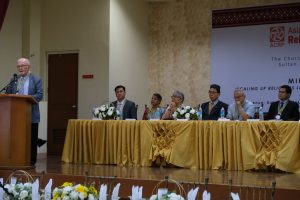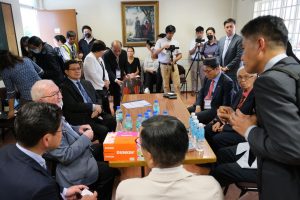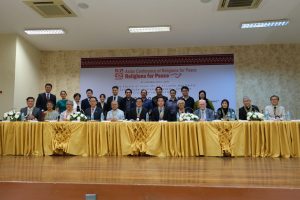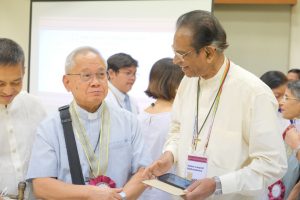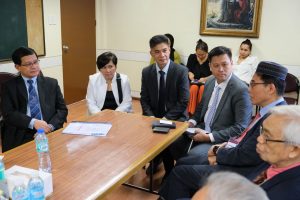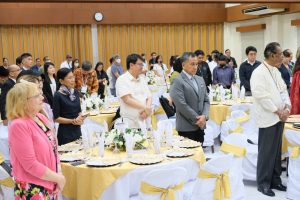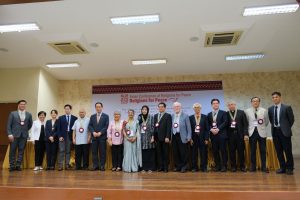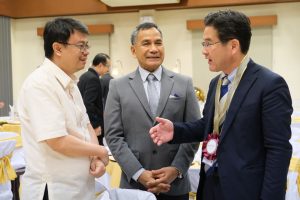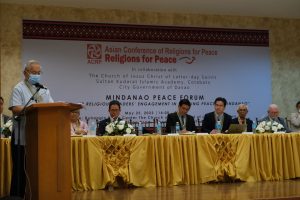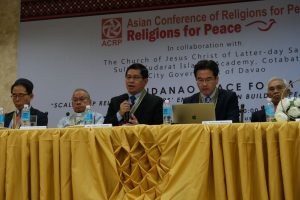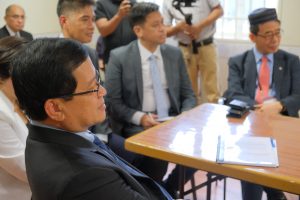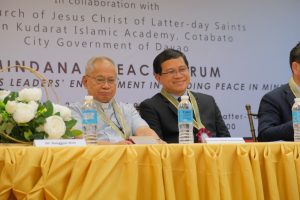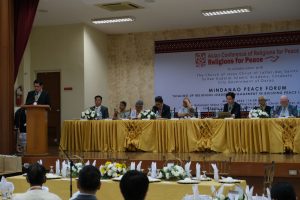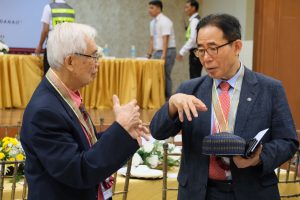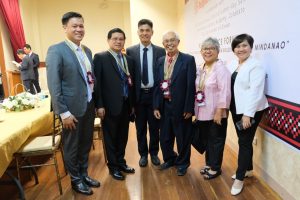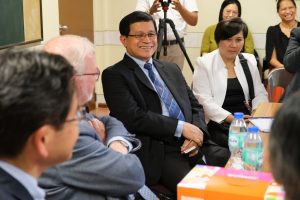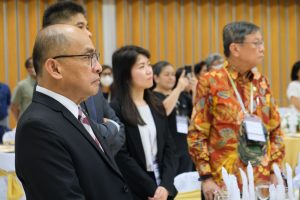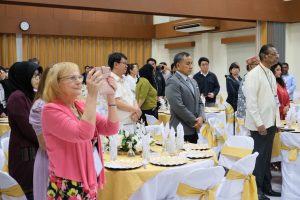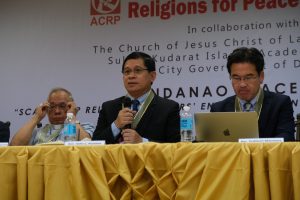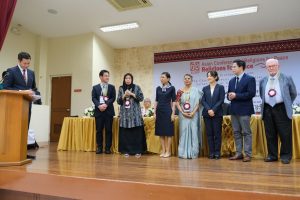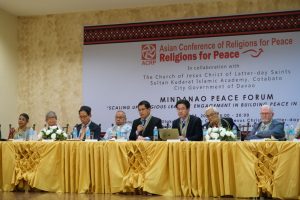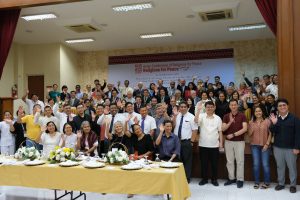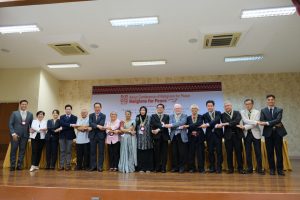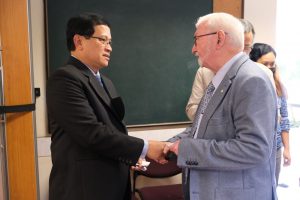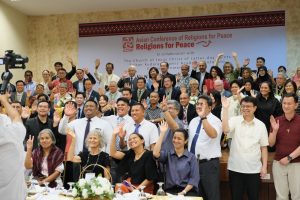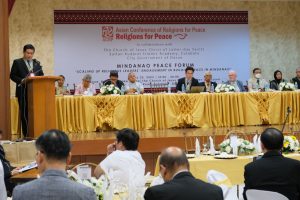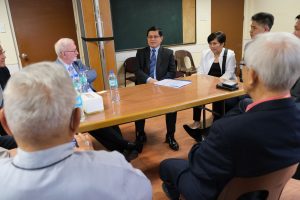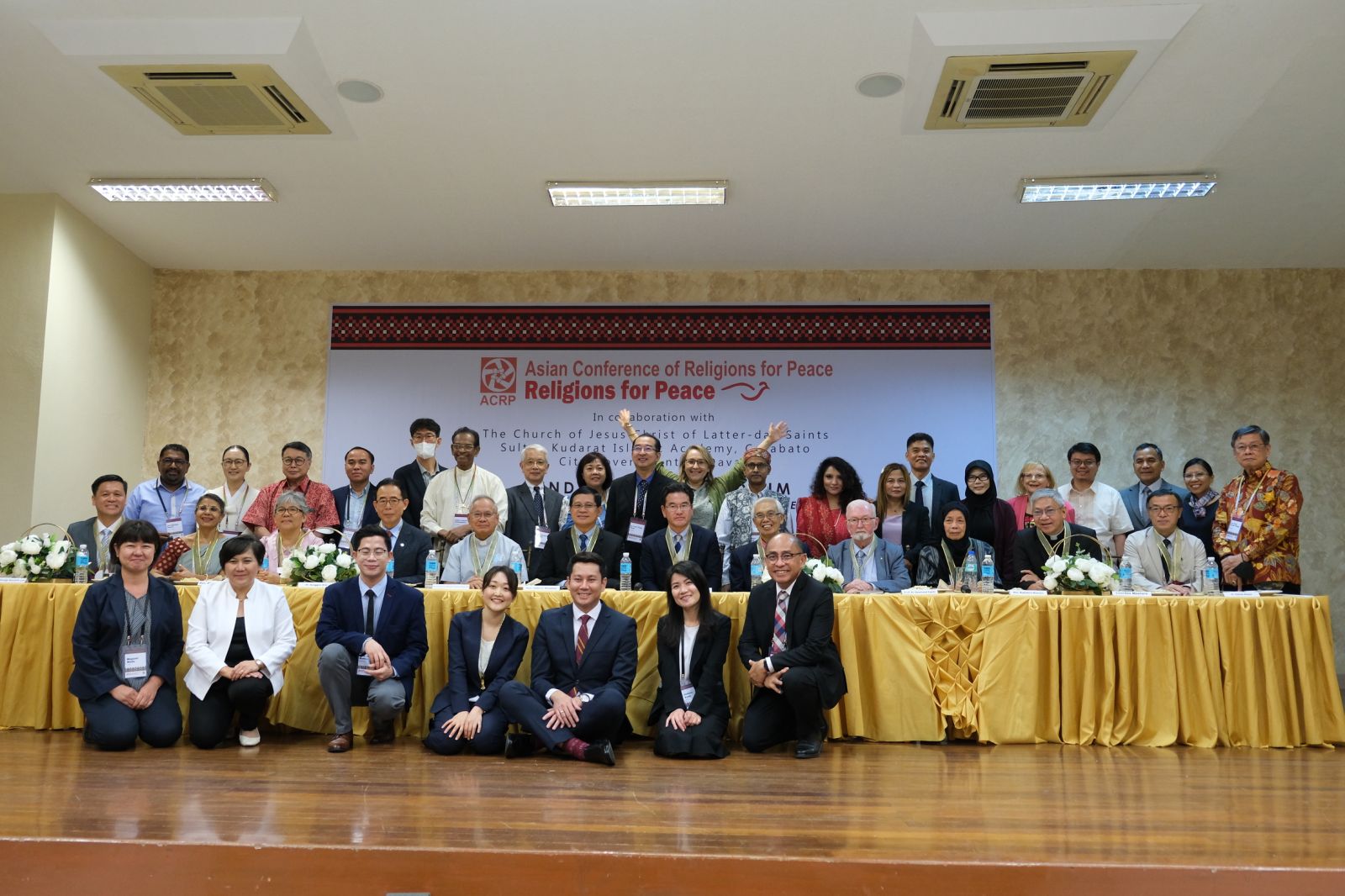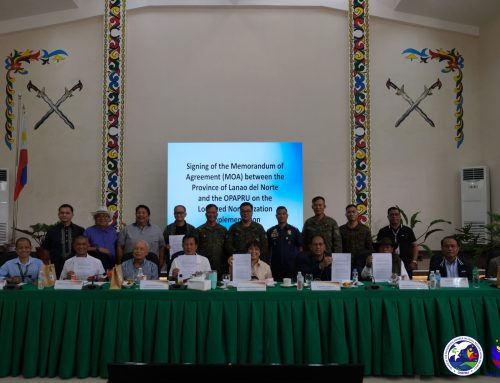DAVAO CITY – The Bangsamoro peace process took center stage during the Mindanao Peace Forum 2023 held here on Friday, May 25, a gathering attended by more than a hundred local and foreign religious leaders, peace workers and civil society representatives.
Organized by the Asian Conference of Religions for Peace (ACRP), the forum aimed to strengthen inter-faith and inter-religious dialogue as a means of promoting the culture of peace, mutual understanding and solidarity across Mindanao.
Aspirations for peace
Cardinal Orlando Quevedo, archbishop of the Archdiocese of Cotabato, shared his list of “aspirations,” which he hopes could help push forward, build on and sustain the gains of peace in the Bangsamoro Autonomous Region in Muslim Mindanao (BARMM).
According to Quevedo, there is a need “to get rid” of the historical prejudices and biases that are prevalent in the Bangsamoro, which is considered a melting pot of various cultures, religions and traditions.
“The citizens of the BARMM – from different cultures, different religions, different traditions — need to realize this aspiration…[that this] is a process of conversion of mind and heart to understand, to accept and appreciate the realities of the other,” he said.
Quevedo also called on the Bangsamoro Transition Authority (BTA) to craft and implement a “culture of peace program” that will be implemented “in homes, neighbourhoods, private associations, NGOs and schools” across the region.
“This culture of peace program should include knowing the cultures and traditions of others, towards understanding and reconciliation. Inter-faith and inter-religious dialogue [must] be promoted not only among religious and political leaders but also [at] the grassroots,” he said.
Reaching a common ground
Atty. Michael Mastura, president of the Sultan Kudarat Islamic Academy and a major pillar of the Bangsamoro peace process, underscored the importance of involving a “third party” during peace negotiations.
“When we proposed a framework where there will be a third party for the two negotiating panels, there will be a component not only on the ceasefire, the International Monitoring Team, but also a framework where there will be friends of the peace process,” Mastura said.
“The peace process is not about ‘unpeace’ or the absence of war or violence,” he explained, adding, “It’s about people [who] come together and think of a way to let parties come to a negotiating table.”
Dr. Sunggon Kim, honorary president of the Religions for Peace Asia, observed that despite the establishment of the BARMM and the regional government, there is still a “collision of powers” in the region.
Kim pointed out that peacebuilding is “never easy,” as a small misunderstanding between both negotiating parties could trigger conflict where “the whole peace [process] can collapse in a moment.”
“As a professor of religion, I believe that religion is a means to realize love towards our neighbor and heal the suffering people. This forum is a good occasion to think about what is the real goal and real function of religion.
Fr. Carlos Reyes, minister for Ecumenical and Interfaith Affairs of the Archdiocese of Manila, observed that religion is being “weaponized” across the globe, as can be gleaned from the current situation in Ukraine.
“Let’s face it. Religion has two faces – Dr. Jekyll and Mr. Hyde. And we can ignore this to our detriment. We emphasize that we are religions for peace. Religions by nature and purpose, must be religions that promote peace,” Reyes said.
“Religions must promote understanding, solidarity, fraternity and most of all, peace. Religions should be characterized by peace. It is up to us, the genuine practitioners of religion, to manifest to this wounded world, the true face of religion,” he added.
Unity in diversity
Acting Presidential Adviser on Peace, Reconciliation and Unity Sec. Isidro Purisima noted that gatherings such as the peace forum is a testament “that despite our differences, we can all unite and work as one in addressing pressing societal concerns that Mindanao is facing.”
“This is the reason why OPAPRU’s interventions aim to promote mutual respect and understanding among our stakeholders. It is through open and sincere dialogue that we will be able to build a stronger consensus among our peace partners” Purisima said.
An example of these collaborative peacebuilding interventions, he said, is the Memorandum of Agreement (MOA) entered into by the OPAPRU and the Ateneo de Davao University to implement the Madaris Volunteer Program (MVP).
“It (MVP) is designed to sustain and enhance the capability of traditional learning institutions and educators in Mindanao to promote the culture of peace and foster inter-religious dialogue. This project is under the national government’s peace education agenda,” Purisima said.
He said that with the successful implementation of the Comprehensive Agreement on the Bangsamoro, the OPAPRU sees the value of holding interfaith peace conversations, as these can help bridge the gap and reach a common ground with its peace stakeholders.
“In our peace journey, there is a need for us to actively engage and involve our traditional religious leaders, particularly in the implementation of prevention and transformation of violent extremism programs and other peacebuilding interventions,” Purisima said.
“Indeed, this 1st Mindanao Peace Forum is another major step forward in our collective efforts to build a Mindanao-wide consensus that is anchored on peace, mutual understanding and solidarity,” he added. ###
